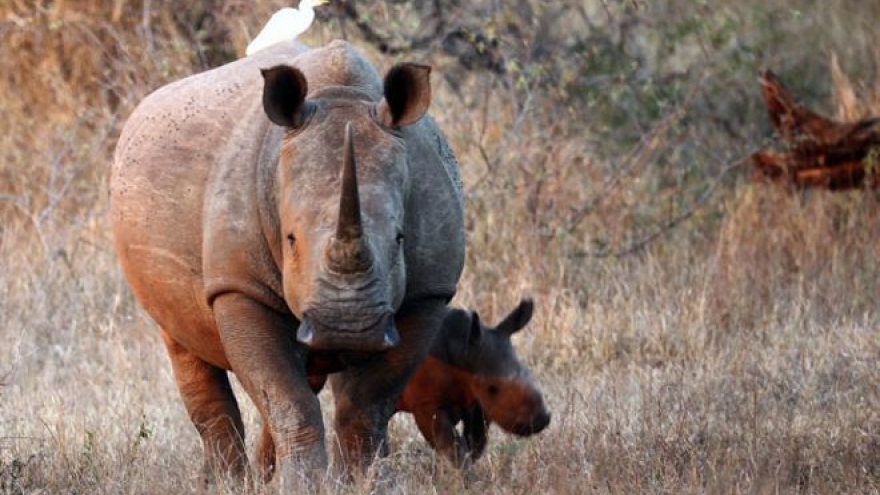Tennis star Andy Murray signs WWF petition to end wildlife trade in Vietnam
The petition has received more than 163,300 signatures and will be delivered to Vietnamese officials at an international conference next week.
 |
“I have just signed the WWF petition to urge Vietnam to end its illegal trade in wildlife products. Some of the world’s most beautiful species are threatened by this horrendous crime - from tigers to pangolins to elephants to rhinos,” Murray said, as cited by the WWF in an online post.
“It’s up to each one of us to do our part and take a stand against it, so I encourage everyone to sign this petition,” said the WWF's new global ambassador, who has become the world's number one tennis player this year.
The campaign, “Act Now to Save Rhinos,” urged people to join and sign a letter to Prime Minister Nguyen Xuan Phuc, and to ask that the Vietnamese government take “concrete action” to tackle the poaching of the two endangered species.
The petition has secured more than 163,300 signatures so far and the WWF said its representatives will deliver the letter to Vietnam’s government officials during the Hanoi Conference on Illegal Wildlife Trade on November 17-18.
As the host of the conference, “Vietnam has a golden opportunity to crackdown on wildlife crime and contribute to saving two of the world's most iconic species,” the group wrote in the letter.
Prince William, the Duke of Cambridge, will be attending the conference with government officials from around the world.
Vietnam and its neighbor China have been identified by international conservation groups as the world’s biggest consumers of rhino horn.
Rhinos are being poached in South Africa at the rate of one animal every eight hours. The country has lost nearly 6,000 rhinos since 2007, while its elephant population has shrunk by a fifth in the past decade.
The Vietnamese government has indeed committed to combating wildlife trafficking, by outlawing commercial use of rhino horn and ivory as well as signing a pact with South Africa on biodiversity management to curb the rampant illegal trade.
But little has been achieved, according to conservationists.
“Illegal rhino horn and ivory are still openly for sale in wildlife markets and on social media/online. Yet there has not been a single recorded prosecution of a rhino horn or ivory trafficker,” the WWF wrote in its petition letter, which can be found on its website.
In September, the WWF threatened trade sanctions against Vietnam. It suggested signatories to the Convention on International Trade in Endangered Species of Wild Fauna and Flora bring sanctions against the country if it continues to avoid action.
Rhino horn is sought after in Vietnam by those who believe that it can cure cancer, despite no scientific basis.
The last known Javan rhino in Vietnam, which belonged to a rare Southeast Asian species, was found dead in 2010. Its horn was hacked off.



